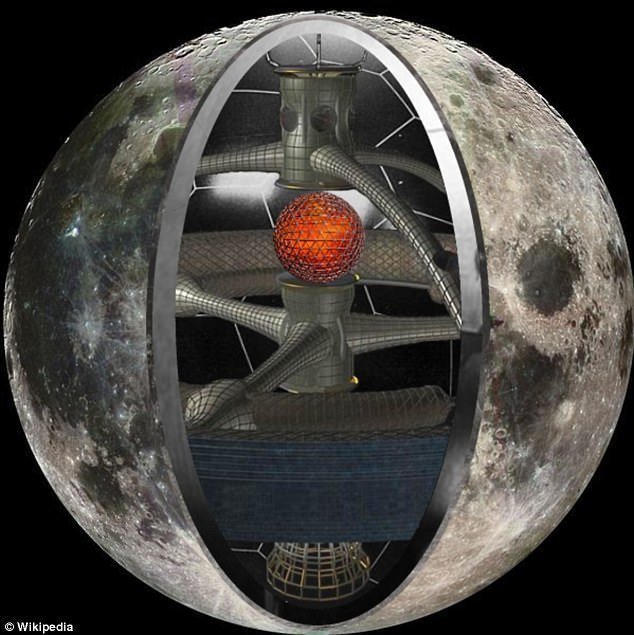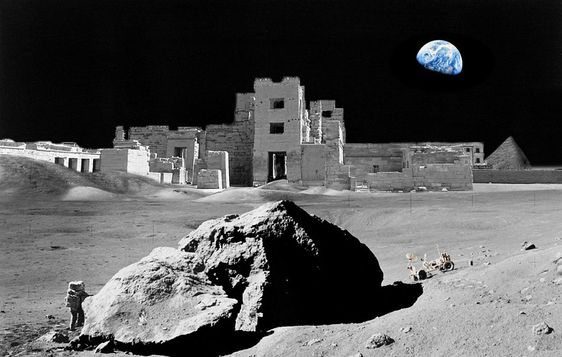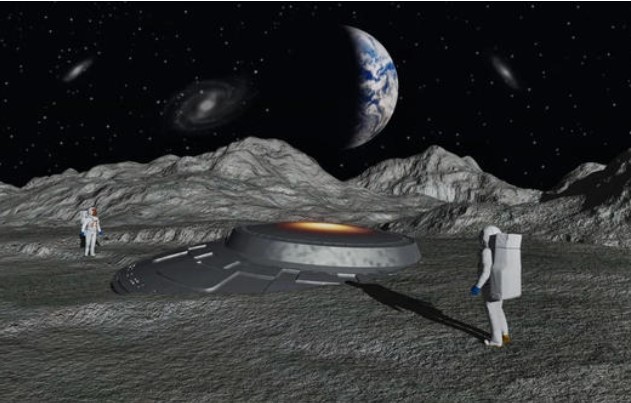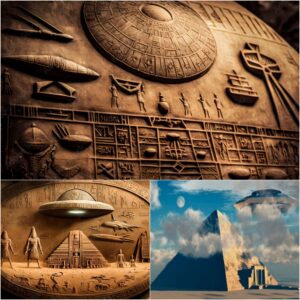In the vast expanse of the cosmos, the Moon has long stood as a silent witness to humanity’s cosmic endeavors. A wave of speculation has emerged among scientists, challenging conventional narratives. Some researchers now entertain the captivating notion that the Moon may serve as the base for an ancient extraterrestrial civilization, leaving behind enigmatic ruins that defy our understanding of lunar history. Join us on an exploration of the lunar mysteries as scientists delve into the possibility of strange extraterrestrial ruins on our celestial neighbor.

As technology advances and lunar exploration becomes more sophisticated, scientists are revisiting data collected from various missions to the Moon. Images, geological surveys, and anomalous readings have sparked scientific curiosity, prompting a reevaluation of the lunar landscape. Some researchers propose that peculiar features observed on the Moon could be remnants of an extraterrestrial civilization that once called Earth’s natural satellite home.

The anomalies that have ignited speculation include strange structures, geometric formations, and unusual patterns scattered across the lunar surface. These features, when scrutinized, deviate from the expected geological formations, leading some scientists to consider the possibility that they might be remnants of an advanced extraterrestrial civilization. The tantalizing prospect of lunar ruins challenges our understanding of the Moon’s history.

The notion of extraterrestrial ruins on the Moon invites speculation about the architectural characteristics of such structures. Some scientists propose that these potential ruins could be the remnants of advanced structures, possibly serving as bases, observatories, or even technological hubs for an ancient civilization. The architectural speculations open a realm of possibilities, urging scientists to consider the implications of a lunar history intertwined with extraterrestrial activity.
While the concept of extraterrestrial ruins on the Moon captures the imagination, the scientific community approaches these claims with a healthy dose of skepticism. Researchers emphasize the need for rigorous analysis, critical examination of data, and the application of scientific methodologies to discern between natural geological formations and potentially artificial structures. The scientific process remains essential in distinguishing between genuine anomalies and mere conjecture.
The debate among scientists revolves around the fundamental question of whether the observed anomalies on the Moon are evidence of an ancient extraterrestrial civilization or if they can be explained by natural geological processes. The quest for answers pushes the boundaries of lunar exploration and challenges scientists to unravel the mysteries hidden within the lunar terrain.
News of the possibility of extraterrestrial ruins on the Moon has captured public intrigue, sparking discussions across social media, scientific forums, and public discourse. The collective fascination with the idea of an ancient lunar civilization fuels cosmic speculation, with individuals pondering the potential implications for our understanding of the cosmos and humanity’s place within it.
The prospect of extraterrestrial ruins on the Moon adds a layer of excitement to future lunar missions. Space agencies, including NASA and other international partners, are planning missions that aim to explore and analyze specific lunar sites associated with these anomalies. The anticipation of cosmic discoveries on our celestial neighbor propels humanity into a new era of lunar exploration.
As scientists delve into the possibility of extraterrestrial ruins on the Moon, the cosmic mysteries hidden within our celestial neighbor beckon humanity to explore the unknown. Whether these anomalies are remnants of an ancient civilization or natural formations, the pursuit of truth expands our understanding of the cosmos, inviting us to question, discover, and embrace the infinite wonders that lie beyond Earth’s horizon.





